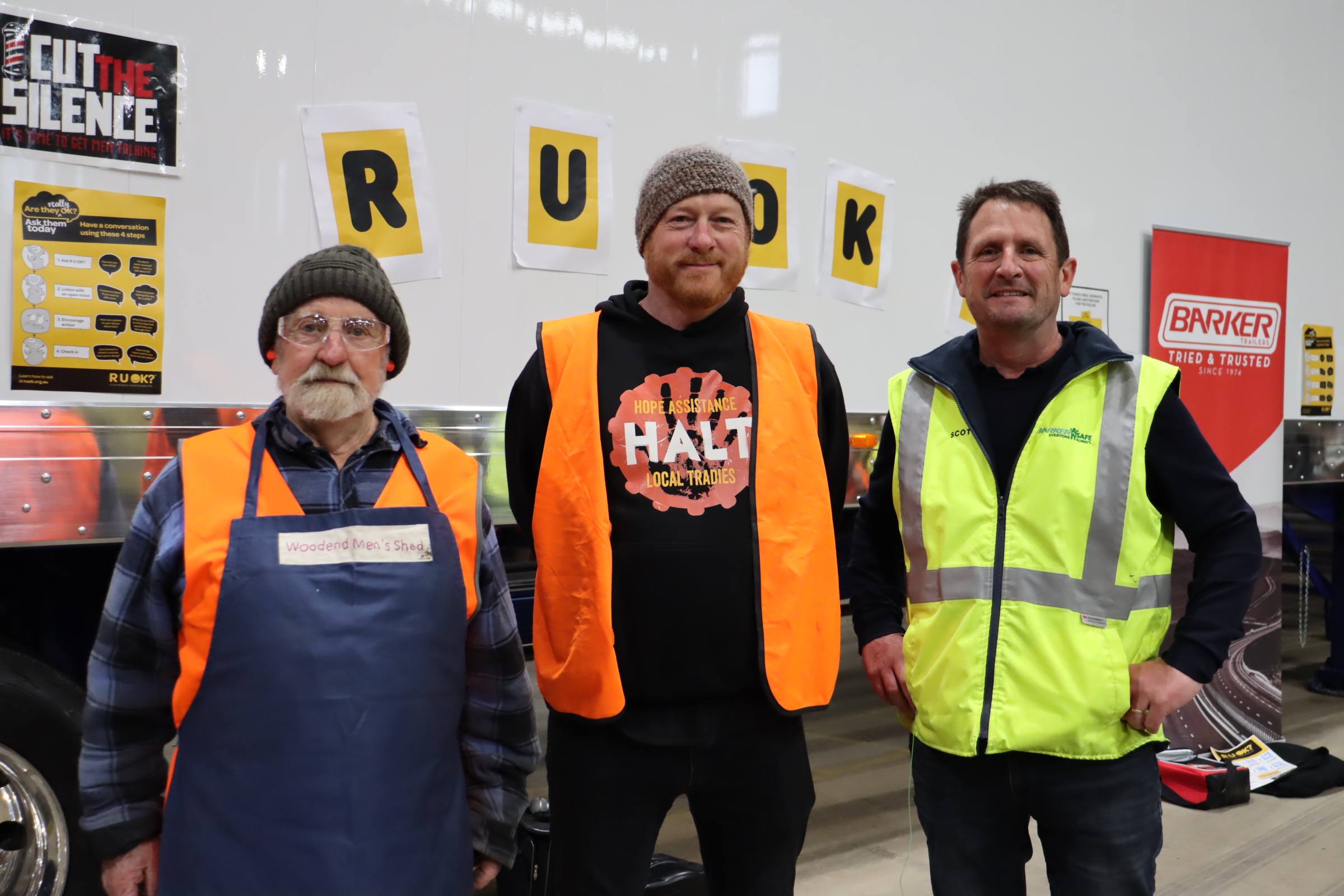
Castlemaine tradie Jeremy Forbes knows a thing or two about what it means to face your own demons.
His own mental health struggles have helped him to connect with others and remove the shame that can sometimes be associated with seeking help.
Jeremy is the founder of suicide prevention charity HALT and last week was the key speaker at Barker Trailers’ R U OK? Day lunch at Woodend.
The HALT program emphasises the importance of looking out for your mates and educating people on where they can get support if they need it.
“Events like this can potentially be life-saving and help get important conversations started,” Jeremy said.
Barker Trailers’ Scott Barker said the organisation wanted people to feel confident in seeking support if needed.
“Tradies are an at-risk group in that too often there is a culture of ‘she’ll be right, mate’ and don’t speak about some of their struggles,” he told the Express.
“R U OK Day is important because it encourages people to take mental health seriously.”
The lunch took place at both Woodend and Maryborough Barker Trailer sites last Thursday.
Woodend Men’s Shed, another local organisation promoting mental health awareness, helped to serve up a barbecue lunch on the day.
Having that chat
Getting the conversation started can feel daunting but if you notice a friend or family member who is struggling you could be helping to save a life. Here are some tips from HALT:
Step 1. Find a private moment to talk where you won’t be interrupted. Keep it casual.
Step 2. Start by saying “How are you doing?” or “I’ve noticed you might have been struggling a bit – are you okay?”
Step 3. Listen and be present. Don’t dismiss what they are saying.
Step 4. If you think they might be experiencing suicidal thoughts, ask them. Try to avoid saying things like, “you’re not going to do something stupid are you?” Don’t try to convince them that suicide is wrong. These approaches may seem judgemental and could shut down communication and opportunity to get support.
Step 5. Tell your mate that you care and want to help. Ask them how they would like to be supported and if there is anything you can help with.
Step 6. If they are willing to get help, make them an appointment with their GP. The GP will be able to help with a mental health care plan where they have access to counselling and other services.
Your own mental health
HALT says there are many things we can do to look after our own mental health.
1. Stay physically active – go for a walk, do yoga, get gardening – whatever is right for you to get moving.
2. Connect – talk to friends and family, spend quality time with loved ones.
3. Volunteer or give back – volunteering for your community can help you feel connected and increase your sense of value and purpose.
4. Keep your mind active – learn a skill or new hobby.
5. Stop and take notice – slow down and appreciate the little things.
Anyone needing support can call the Lifeline, an anonymous 24-hour crisis support, on 13 11 14.







